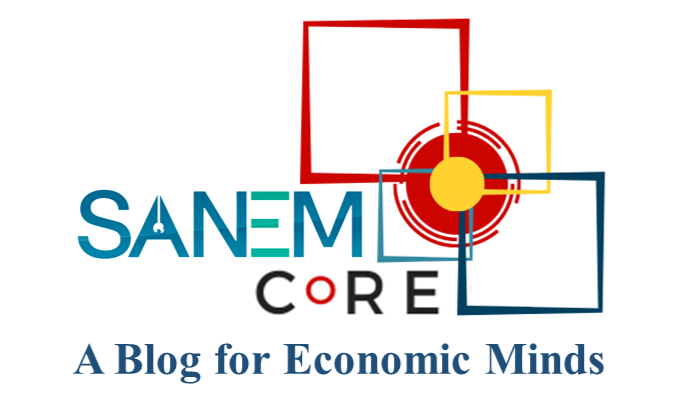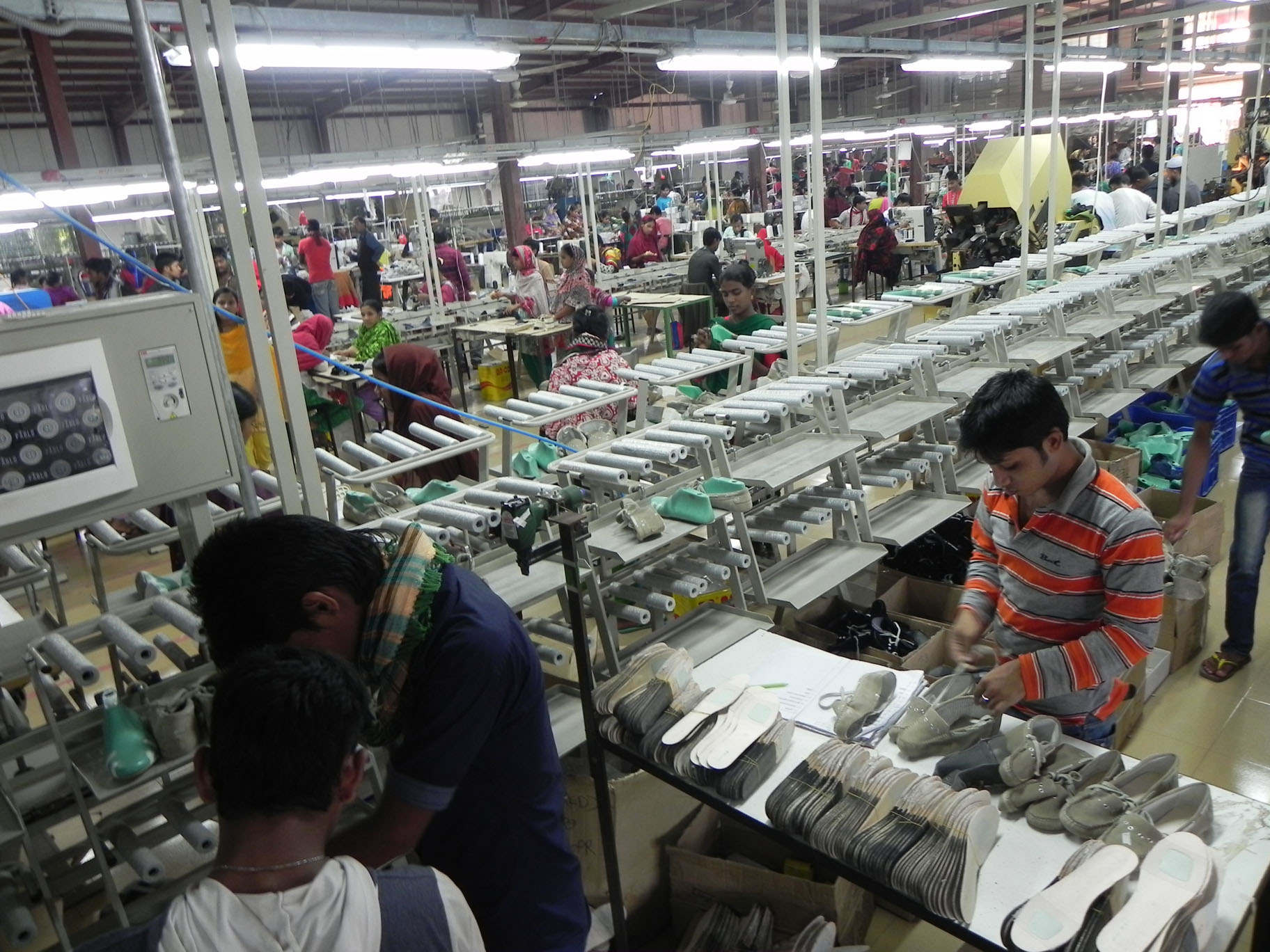The Bangladesh economy has witnessed significant structural changes over the last four decades. The share of agriculture in GDP has declined while the relative significance of industry and services sectors has increased substantially. Over the past two decades or so, Bangladesh has experienced sustained overall economic expansion. However, the economy is yet to have a strong manufacturing base. The pace of reduction in agriculture’s share in overall employment has however been much slower than the pace of reduction in agriculture’s share in GDP. This suggests that growth in the overall manufacturing and services sectors have not been strong enough to reallocate surplus labour from agriculture. This indicates that as far as the overall manufacturing sector is concerned, there remains a challenge for employment creation at a larger scale.
Manufacturing is now an overwhelmingly salient component of the country’s export composition, thanks largely to the rapid expansion of the RMG industry. RMG has been an important contributor to the growth and employment generation in Bangladesh. However, the question remains as to whether the current structure of the manufacturing sector would continue as a sustained driver of economic growth and employment creation in Bangladesh in the future because of two reasons. Firstly, given the existing heavy reliance on the RMG sector and weak performance of most of the non-RMG manufacturing sectors, achieving sustained and long term growth in the manufacturing sector in Bangladesh remains a challenge. Secondly, it can be argued that the growth in the RMG sector in Bangladesh has, to a large extent, been driven by some sizeable ‘rents’ generated in this sector, and there are possibilities of shrinking the sizes of such ‘rents’ in the future due to both domestic and international factors. There have been five major sources of ‘rents’: the Multifibre Arrangements (MFA) quota (which no longer exists) and the Generalised Systems of Preference (GSPs); different forms of subsidies; tax exemption; the labour regime; and compliance.
The MFA regime was phased out by the end of 2004, though the GSP facility of the EU is still in place. However, there are concerns with regard to the continuation of such facilities in the future on grounds of lack of compliance, weak labour standards and the conflictual political situation in Bangladesh.
The RMG industry also enjoys support from the government in the form of export subsidies, interest rate subsides and subsidies on the cost of utilities. ‘Rent’ in this sector is also generated by the tax exemption facilities. It is estimated that the size of the tax foregone in the RMG sector due to the provision of tax exemption facilities in recent years could be as high as 6.3 percent of the total tax revenue. However, the size of such ‘rent’ could shrink over time due to the budgetary constraints of the government.
Over the past three decades, the RMG industry has benefited from a labour regime, supported by the major political parties, which has been able to keep the wages of labour in this industry very low. However, recent labour unrest over the hike of the minimum wages in this sector as also the pressure exerted by the international community poses serious challenges in terms of the ‘sustainability’ of such a labour regime. Similarly, a regime of lack of compliance, especially with regard to the working environment and factory standards, in the context of weak regulatory institutions, has generated ‘rent’ for this sector over the years.
However, such ‘rent’ has become highly unsustainable due to the serious international pressure for enforcing compliance in the wake of recent incidents of fire and building collapse, which have resulted in a large number of deaths of RMG workers. All these developments suggest that the RMG sector in Bangladesh needs to undergo some major structural changes in the future for ensuring its sustainability, which would have important implications for the growth of both the manufacturing sector as also of the overall economy.
Against this backdrop, it is important to highlight that in order to become a sustained driver of economic growth and employment creation in Bangladesh, the manufacturing sector needs to lay stress on expanding and diversifying its base. It is important to support macroeconomic, trade and industrial policies, and to address the policy-induced and supply-side constraints, which have hampered the growth of the non-RMG sectors. Some of these constraints include the lack of investment funds and working capital, prevalence of high-interest rates, shortage of skilled workers, lack of entrepreneurial and managerial skills, availability of poor physical infrastructure, and inefficient ports along with high transport costs, weak institutions, a poor law and order situation, and high invisible costs of doing business, among other things.
Apart from RMG, the export response of all other major commodities has been very weak. The RMG sector also appears to be the main beneficiary of the export incentives while for the non-RMG sectors, such schemes have proved to be less effective. This situation also raises a critical question as to whether rents are needed for the promotion of the non-RMG sectors. The current industrial policy highlights the importance of economic diversification and of providing incentives to other sectors in order to generate some rents in the non-RMG sectors. However, it should be kept in mind that the manner in which the RMG sector has been able to generate ‘rents’ through the suppressed labour regime and weak compliance is not sustainable and cannot be replicated in the other sectors. Hence, there is a need for a well-designed and effective industrial policy wherein monetary (interest rate subsidies) and fiscal incentives (reduced taxes or tax holidays) should be transparent and time-bound. The current industrial policy, however, lacks vision and is also poorly designed. In addition, industrial policy needs to address issues of education and skill development for facilitating higher capabilities, in which Bangladesh is lacking.



RECENT COMMENTS